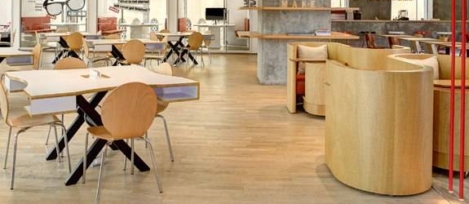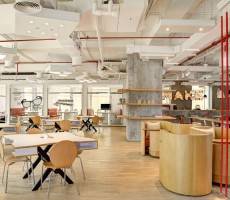August 13, 2015
Take-up of sit-stand desks still lagging in UK, but change is coming fast 0
 The number of UK employers offering staff sit-stand workstations remains sluggish, despite rapidly growing awareness of their benefits, according to a new study from office furniture firm Kinnarps. Compared to the near universal provision of sit-stand desks in Scandinavia, and in spite of the fact that UK buyers now universally acknowledge what they can do to improve employee wellbeing, the UK market has yet to fully adopt workstations that encourage more active working. Based on a study of 132 senior decision makers, facilities managers, designers and HR managers, 98 percent of respondents say they can see the attraction of introducing sit-stand working, citing improved health (73 percent), increased productivity (11 percent) and attracting and retaining talent (5 percent), among the principal benefits. Yet only 8 percent say that such workstations are ‘widely available’ in their workplaces.
The number of UK employers offering staff sit-stand workstations remains sluggish, despite rapidly growing awareness of their benefits, according to a new study from office furniture firm Kinnarps. Compared to the near universal provision of sit-stand desks in Scandinavia, and in spite of the fact that UK buyers now universally acknowledge what they can do to improve employee wellbeing, the UK market has yet to fully adopt workstations that encourage more active working. Based on a study of 132 senior decision makers, facilities managers, designers and HR managers, 98 percent of respondents say they can see the attraction of introducing sit-stand working, citing improved health (73 percent), increased productivity (11 percent) and attracting and retaining talent (5 percent), among the principal benefits. Yet only 8 percent say that such workstations are ‘widely available’ in their workplaces.



































June 29, 2015
Beyond agile working: the six factors of knowledge worker productivity
by Andrew Mawson • Comment, Facilities management, Flexible working, Workplace, Workplace design
More →